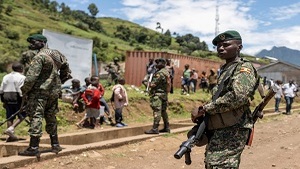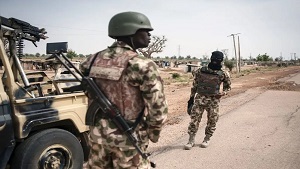The Council convened on an urgent basis to discuss the humanitarian situation in Gaza, just a day after the Integrated Food Security Phase Classification (IPC) warned that the entire territory at critical risk of famine that is projected to deteriorate in the weeks and months ahead.
The snapshot analysis found that almost 250 000 or 12% of the population was classified as living in IPC Phase 5, a catastrophic level of food insecurity that leads to famine.
Gaza has been under an Israeli humanitarian blockade for more than 70 days, preventing food, medicine, water and tents for a weary population. According to the UN, hundreds of thousands of Palestinians are continually and forcibly displaced, confined into shrinking spaces, which 70% of Gaza's territory either within Israeli-militarised zones or under displacement orders.
Tom Fletcher is the UN Under Secretary General for Humanitarian Affairs, and says the number of civilian casualties continues to rise.
“Israel is deliberately and unashamedly imposing inhumane conditions on civilians in the Occupied Palestinian Territory. Every single one of the 2.1 million Palestinians in the Gaza Strip face the risk of famine. One in five face starvation. Despite the fact that you have funded the food that could save them. The few hospitals that have somehow survived bombardment are overwhelmed. The medics who have somehow survived drone and sniper attacks cannot keep up with the trauma and the spread of disease. Even today, the European Gaza Hospital in Khan Younis was bombed, again, with even more civilian casualties reported,” Fletcher said.
The IPC released a snapshot this week, warning that while the entire Gaza population faced high levels of acute food insecurity and at critical risk of famine, one in five Gazans are current facing starvation, a situation that was expected to worsen in the months ahead. The current analysis marks a serious deterioration compared to a previous snapshot published in October last year.
It also found that the ongoing blockade had reversed the temporary alleviation of acute food insecurity achieved in Gaza during the most recent ceasefire in which several hostages were released.
UN Secretary General Antonio Guterres also expressing alarm, especially that the vast majority of Gaza's children faced extreme food deprivation, through his Spokesperson Stephane Dujarric.
“The way to address this crisis should be clear, and we have been very clear on that front: open up Gaza so that aid and other essential supplies can reach everyone who needs them, wherever they are,” Dujarric said.
The United Kingdom (UK) joined by France, Denmark, Greece and Slovenia, all currently serving on the Council, in issuing a joint statement warning that blocking aid as a pressure lever was unacceptable and calling on Israel to lift its block on aid and enable humanitarians to save lives. UK Envoy Ambassador Barbara Woodward says humanitarian aid must never be used as a political tool.
“We are also deeply concerned at proposals to establish a new mechanism for the delivery of aid, which the UN has said would not meet humanitarian principles. International law requires Israel to allow and facilitate the safe, rapid and unimpeded passage of humanitarian aid and ensure that basic services are provided for all Gazan civilians. This applies to all armed conflicts around the world. Gaza is not an exception,” Woodward said.
--SABC--













